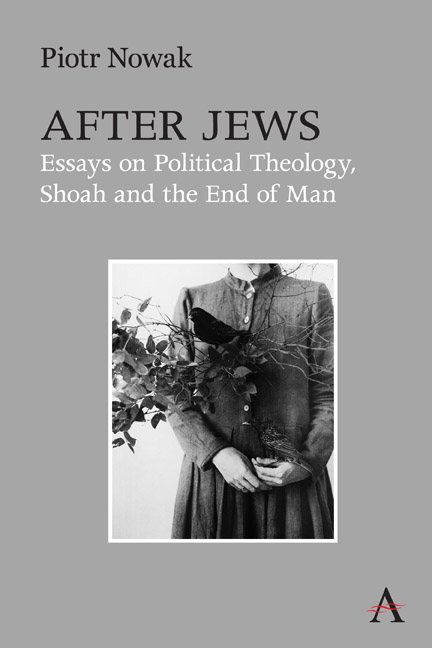Book contents
- Frontmatter
- Contents
- Preface
- Chapter 1 The Chosen Ones
- Chapter 2 The Secret of the Scapegoat
- Chapter 3 Making a Jew into a Christian
- Chapter 4 There Should Be Time No Longer
- Chapter 5 To Look Upon His Face and Yet Not Die
- Chapter 6 Ex oriente lux?
- Chapter 7 Pilloried by Necessity
- Chapter 8 German Rubble
- Chapter 9 Long Live!
- Chapter 10 The Living against the Dead
- Chapter 11 The Child of War
- Chapter 12 Plenty Coups and the End of the World
- Chapter 13 They Refugees
- Chapter 14 The Remainder of Christianity
- Bibliography
- Index of Persons
Chapter 3 - Making a Jew into a Christian
Published online by Cambridge University Press: 13 May 2022
- Frontmatter
- Contents
- Preface
- Chapter 1 The Chosen Ones
- Chapter 2 The Secret of the Scapegoat
- Chapter 3 Making a Jew into a Christian
- Chapter 4 There Should Be Time No Longer
- Chapter 5 To Look Upon His Face and Yet Not Die
- Chapter 6 Ex oriente lux?
- Chapter 7 Pilloried by Necessity
- Chapter 8 German Rubble
- Chapter 9 Long Live!
- Chapter 10 The Living against the Dead
- Chapter 11 The Child of War
- Chapter 12 Plenty Coups and the End of the World
- Chapter 13 They Refugees
- Chapter 14 The Remainder of Christianity
- Bibliography
- Index of Persons
Summary
Venice
Already in early Middle Ages this exotic melting pot—a multilingual, international center on Southern Europe's map—moved the imagination with its openness and color. Everything intermingled here: nationalities, denominations, languages, businesses. With the big money went a lack of any inhibitions. In Renaissance Venice, religious matters were a little looked down upon as it was believed they may have a negative impact on people's involvement in earthly affairs.
It was believed that only by directing men's interests to something which could subordinate their religious attachments would it be possible to establish a way of life in which religious doctrines and their intransigence would not play the leading part. It was not thought possible to educate men to a tolerant view or to overcome the power of the established religions by refuting them; the only way was to substitute for the interest and concern of men's passions another object as powerfully attractive as religion.
The pursuit of money, the effort to multiply it, became the substitute of religion, while the sphere of commerce—business, hustle, exchange—moved to the sphere of the sacred; “Men for whom money is the most important thing are unlikely to go off on Crusades.”
The Venice that Shakespeare has in mind is a place where the space available for values other than money has radically shrunk. Nobody manufactures anything here; the only thing made is the maniacally multiplied capital. Money is no longer a convenient tool for the exchange of goods, rather it becomes an end in itself. A free coexistence of Jews and Gentiles is forced by the realities of early capitalism, which liquidates nonmaterial values, thus forcing tolerance for religious differences by making them of no importance. In such a place, time flows differently. Until then human life was entirely structured by natural time. Even if one year the harvest was bigger, and the next one smaller, the balance would in the end be even within one generation. If no wars were waged and no impressment or tribute was imposed, life in such an orderly world was relatively safe and comfortable.
- Type
- Chapter
- Information
- After JewsEssays on Political Theology, Shoah and the End of Man, pp. 25 - 36Publisher: Anthem PressPrint publication year: 2022



